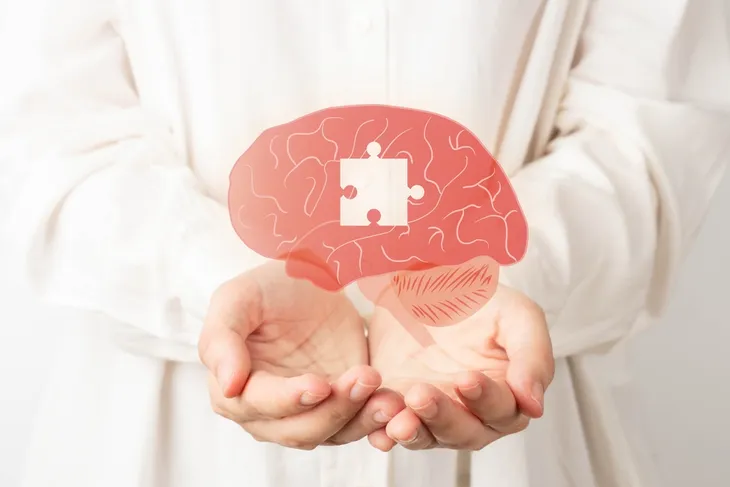- The terms narcissist and sociopath are often used interchangeably but they are two different personality disorders.
- The biggest difference between a narcissist and a sociopath is the degree to which someone disregards others.
- Sociopaths are more dangerous than narcissists but you don’t want to be in a relationship with either, so it’s important to know the signs.
The terms narcissist and sociopath are thrown around loosely and sometimes they’re used interchangeably. They’re often used to describe someone arrogant and self-centered. But those are only a couple of traits of a true narcissist or sociopath. People should use these terms with caution because some people may have narcissistic tendencies but it doesn’t necessarily mean they have a narcissistic personality disorder or are a sociopath.
While narcissism and sociopathy do share some similarities, they are two different disorders. So let’s take a deep dive into the two mental disorders and find out what the difference is between a narcissist and a sociopath.
What Is Narcissistic Personality Disorder?
Someone with narcissistic personality disorder (NPD) is typically self-centered. Verywell Mind says the individual has a strong need to be admired and feels entitled to special treatment. The source also notes that sometimes the disorder “may nurse dreams of wielding far-reaching power.”
Healthline says to be on the lookout for these traits of NPD:
- Show arrogance and entitlement in their actions and attitudes
- Believe their superior to others
- Expect special treatment because they’re the “best” of everything
- Need a lot of praise and admiration from others
- Have angry outbursts when they feel challenged
- Easily manipulate or take advantage of other people to get what they want
- Have difficulty recognizing other people’s needs and feelings
- Hold grudges and use passive-aggressive behavior for payback
- Get wrapped up in fantasies about their attractiveness, power, and intelligence.
Types of Narcissism
Verywell Mind says there are two main forms of narcissism: the grandiose narcissist and the vulnerable narcissist. The grandiose narcissist believes they are overly important whereas the vulnerable narcissist feels hurt and offended that they aren’t overwhelmed with admiration. Both forms share a lack of empathy for others.
The source also says narcism can be broken down into different types depending on the traits they display. These include:
- Antagonistic narcissism: involves being extremely competitive
- Communal narcissism: involves perceiving oneself as selfless while behaving the opposite
- Covert narcissism: involves subtle signs of narcissism and deep insecurity
- Overt narcissism: involves obvious signs of manipulative behavior
- Malignant narcissism: accompanied by vindictive or sadistic behaviors
What Is a Sociopath?
First, it’s important to point out that doctors don’t officially diagnose people as sociopaths. Instead, doctors use the term antisocial personality disorder. Verywell Mind says a telltale trait of a sociopath or someone with APD is feeling”very little remorse for their actions, no matter how they affect others.”
Sociopaths often use manipulation tactics to gain relationships solely for their own gain or amusement. The source says after the bond is formed, the sociopath may quickly neglect the relationship with no regard for the other person.
Common Symptoms of a Sociopath
Manipulating their way into relationships is just one telltale trait of a sociopath. There are many others to look out for too. Verywell Mind says to watch for these common symptoms of a sociopath:
- No regard for the law and engaging in acts that can lead to arrest
- Swindling people for their time and money
- Exploiting people for their own enjoyment
- Showing no remorse after physically or emotionally hurting another person
- Being impulsive and aggressive
- Difficulty keeping a job and forming stable relationships
- No regard for financial obligations
Narcissist vs. Sociopath: How Are They Similar?
The terms narcissist and sociopath are often used interchangeably mostly because people don’t fully understand the definition of each condition. Though they are two different conditions, they do share some similarities. So, how are they similar?
Healthline says the following traits are similar in both narcissistic personality disorder and antisocial personality disorder:
- Exploit or manipulate others for personal gain
- Lack empathy
- Are shallow or behave in insincere ways
- Display superficial charm and charisma
- Have difficulty maintaining relationships and jobs
The source also notes that the traits of both conditions typically become less severe with age. And both conditions may improve with professional support.
Narcissist vs. Sociopath: How Are They Different?
When you take a deeper look into both conditions you’ll quickly find some distinct differences that set the two apart. For starters, narcissists don’t usually disregard the law and rules to the same extent as sociopaths. Healthline says they also aren’t usually impulsive or dismissive of their own safety and they may show some empathy for others like their children or pets.
Unlike narcissists, people with sociopathic traits don’t usually need admiration and praise from others. They may also use more violent or aggressive tactics. And finally, the source says sociopaths don’t usually express the same envy of others compared to narcissists.
What Is a Narcissistic Sociopath?
It’s also important to point out that the two conditions can often occur together. Verywell Mind says someone who has traits of both disorders is referred to as a narcissistic sociopath. The source says the individual may “have an exaggerated sense of importance and are willing to manipulate others to get the things they want.”
Though a co-occurring diagnosis is quite common, Healthline notes that experts say having both narcissistic personality disorder and antisocial personality disorder often leads to worse mental health outcomes.
What Causes Narcissistic Personality Disorder?
Unfortunately, the exact cause of narcissistic personality disorder isn’t fully understood. The Mayo Clinic says the cause is likely “complex” and may be linked to a variety of factors, such as:
- Environment: a parent and child relationship displays either too much adoration or too much criticism that doesn’t match the child’s actual achievements and experiences.
- Genetics: inherited characteristics.
- Neurobiology: the connection between the brain and behavior and thinking.
The source also notes that overprotective or neglectful parenting may also increase the risk of NPD, especially in children who are born with the likelihood of developing the disorder.
What Causes Antisocial Personality Disorder?
The exact cause of antisocial personality disorder isn’t known either. That said, the Mayo Clinic says it may be linked to genetics that make a person vulnerable to developing the disorder. Life situations may also trigger its development.
The source also notes that certain factors may increase a person’s risk, such as a diagnosis of childhood conduct disorder or a family history of ASPD or other personality disorders. Abuse or neglect during childhood, as well as an unstable, violent, and disorderly family life during childhood, may also increase one’s risk. The source also points out that men have a higher risk of developing ASPD than women.
Diagnosing NPD and Sociopathy
Diagnosing narcissistic personality disorder and antisocial personality disorder can be a challenge. For starters, NPD can be challenging to diagnose because it often overlaps with other personality disorders. ASPD can be challenging to diagnose because the individual doesn’t usually believe they need help. The Mayo Clinic says they may, however, seek help from their doctor because of other symptoms like depression or anxiety. That said, a key factor in achieving a diagnosis is establishing how “the affected person relates to others.”
Healthline also points out that early signs of both personality disorders may begin developing in teenagehood but doctors avoid diagnosing both conditions until the age of 18. If either condition is suspected, a doctor will likely refer the patient to a mental health professional for further evaluation, which typically involves:
- Evaluating the current symptoms and how they impact their life.
- Review medical history and perform a physical exam to rule out other causes.
- Using the guidelines in the Diagnostic and Statistical Manual of Mental Disorders (DSM-5), published by the American Psychiatric Association.
Treating Narcissistic Personality Disorder
According to the Mayo Clinic, narcissistic personality disorder is treated with talk therapy, also known as psychotherapy. The goal of psychotherapy is to help the patient understand the cause of their emotions and behaviors. It also aims to help them relate to others to have more rewarding and enjoyable relationships.
Though therapy can be short-term, especially during times of crisis, it can also be a long-term treatment. Ongoing therapy can help the patient maintain their goals. The source also points out that including loved ones in therapy can be beneficial too. While therapy is the main form of treatment, medication may also be prescribed if the patient has symptoms of other conditions, such as depression or anxiety.
Treating Antisocial Personality Disorder
Sociopaths don’t typically seek out treatment but they may seek out help for other symptoms like depression and anxiety. If an antisocial personality disorder is diagnosed, psychotherapy may also be recommended. However, the Mayo Clinic points out that treatment “depends on each person’s particular situation, their willingness to participate in treatment and the severity of symptoms.”
Therapy may involve anger and violence management, treating substance misuse, or treatment for other mental health conditions. The effectiveness of therapy heavily weighs on the individual’s willingness to participate and their ability to admit that they have serious problems. Like NPD, there isn’t a specific medication to treat ASPD, however, medication may be prescribed to treat other symptoms like anxiety, depression, or aggression.















